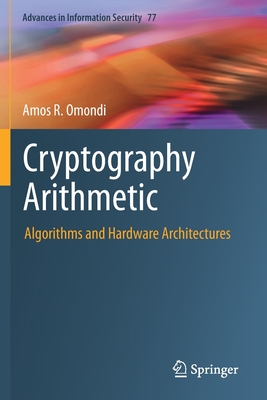買這商品的人也買了...
-
 $1,260CCNA Certification Library (CCNA Self-Study, exam #640-801), 6/e
$1,260CCNA Certification Library (CCNA Self-Study, exam #640-801), 6/e -
 Windows 程式設計 (Programming Windows, 5/e)
Windows 程式設計 (Programming Windows, 5/e)$990$782 -
 Visual Basic.NET 網際網路與 IO 技術實務
Visual Basic.NET 網際網路與 IO 技術實務$580$458 -
 Fundamentals of Multimedia (IE-Paperback)
Fundamentals of Multimedia (IE-Paperback)$1,090$1,068 -
 Linux 程式設計教學手冊
Linux 程式設計教學手冊$780$616 -
 Microsoft Exchange Server 2003 SP1 管理實務
Microsoft Exchange Server 2003 SP1 管理實務$580$458 -
 專業 Java 整合開發工具 Eclipse 3 (Professional Eclipse 3 for Java Developers)
專業 Java 整合開發工具 Eclipse 3 (Professional Eclipse 3 for Java Developers)$560$442 -
 最新 C++ 程式語言
最新 C++ 程式語言$560$504 -
 CSS、HTML、XHTML 精緻範例辭典
CSS、HTML、XHTML 精緻範例辭典$450$356 -
 SQL Server 2005 系統管理應用指南
SQL Server 2005 系統管理應用指南$580$458 -
 精通 Windows Vista 系統實務
精通 Windows Vista 系統實務$580$458 -
 Visual C# 2005 建構資訊系統實戰經典教本
Visual C# 2005 建構資訊系統實戰經典教本$650$507 -
 向世界最 TOP 的網站學 CSS 網頁設計
向世界最 TOP 的網站學 CSS 網頁設計$490$382 -
 SQL 之美學 (The Art of SQL)
SQL 之美學 (The Art of SQL)$620$490 -
 Visual C# 2005 檔案 IO 與資料存取秘訣
Visual C# 2005 檔案 IO 與資料存取秘訣$780$616 -
 CorelDRAW X3 實用課程大全
CorelDRAW X3 實用課程大全$560$442 -
 挑戰 ASP.NET 2.0 for VB 互動網站百寶箱
挑戰 ASP.NET 2.0 for VB 互動網站百寶箱$580$458 -
 3ds max 9 破難關
3ds max 9 破難關$680$578 -
 最新 HTML & CSS 網頁程式設計
最新 HTML & CSS 網頁程式設計$520$411 -
 ADO.NET 2.0 實戰講座
ADO.NET 2.0 實戰講座$690$545 -
 深入淺出物件導向分析與設計 (Head First Object-Oriented Analysis and Design)
深入淺出物件導向分析與設計 (Head First Object-Oriented Analysis and Design)$880$695 -
 ASP.NET 2.0 介面設計與資料存取 (Professional ASP.NET 2.0)
ASP.NET 2.0 介面設計與資料存取 (Professional ASP.NET 2.0)$650$514 -
 鳥哥的 Linux 伺服器架設篇, 2/e
鳥哥的 Linux 伺服器架設篇, 2/e$780$663 -
 The Mentor's Guide: Facilitating Effective Learning Relationships
The Mentor's Guide: Facilitating Effective Learning Relationships$1,410$1,340 -
 ASP.NET 應用程式開發─與 AJAX 共舞
ASP.NET 應用程式開發─與 AJAX 共舞$620$490
商品描述
Description
Implementing Elliptic Curve Cryptography proceeds step-by-step to explain basic number theory, polynomial mathematics, normal basis mathematics and elliptic curve mathematics. With these in place, applications to cryptography are introduced. The book is filled with C code to illustrate how mathematics is put into a computer, and the last several chapters show how to implement several cryptographic protocols. The most important is a description of P1363, an IEEE draft standard for public key cryptography.
The main purpose of Implementing Elliptic Curve Cryptography is to help "crypto engineers" implement functioning, state-of-the-art cryptographic algorithms in the minimum time. With detailed descriptions of the mathematics, the reader can expand on the code given in the book and develop optimal hardware or software for their own applications.
Implementing Elliptic Curve Cryptography assumes the reader has at least a high school background in algebra, but it explains, in stepwise fashion, what has been considered to be a topic only for graduate-level students.
Table of Contents
1 Introduction
Why Elliptic Curves?
Why C?
Orders of Magnitude
Structure of Book
Comments on Style
Acknowledgements
2 Basics of Number Theory
Large Integer Math Header
Large Integer Math Routines
Multiplication
Division
Large Integer Code Example
Back to Number Theory
Greatest Common Factor
Modular Arithmetic
Fermat's Theorem
Finite Fields
Generators
3 Polynomial Math Over Finite Fields
Polynomial Basis Header Files
Polynomial Addition
Polynomial Multiplication
Polynomial Division
Modular Polynomial Arithmetic
Inversion Over Prime Polynomials
Polynomial Greatest Common Divisor
Prime Polynomials
Summary
4 Normal Basis Mathematics
Squaring Normal Basis Numbers
Multiplication in Theory
Type I Optimal Normal Basis
Type II Optimal Normal Basis
Multiplication in Practice
Inversion over Optimal Normal Basis
5 Elliptic Curves
Mathematics of Elliptic Curves Over Real Numbers
Mathematics of Elliptic Curves Over Prime Fields
Mathematics of Elliptic Curves Over Galois Fields
Polynomial Basis Elliptic Curve Subroutines
Optimal Normal Basis Elliptic curve Subroutines
Multiplication Over Elliptic Curves
Balanced Integer Conversion Code
Following the Balanced Representation
6 Cryptography
Fundamentals of Elliptic Curve Cryptography
Choosing an Elliptic Curve
Non-supersingular Curves
Embedding Data on a Curve
Solving Quadratic Equations in Binary Fields
The Trace Function
Solving Quadratic Equations in Normal Basis
Solving Quadratic Equations in Polynomial Basis
Quadratic Polynomials, the Code
Using the T Matrix
Embedding Data Using Polynomial Basis
Summary of Quadratic Solving
7 Simple Protocols
Random Bit Generator
Choosing Random Curves
Diffie-Hellman
ElGamal Protocol
ElGamal Using Optimal Normal Basis
ElGamal, Polynomial Basis
Menezes-Qu-Vanstone Key Agreement Scheme
MQV the Code, Simple Version
8 Elliptic Curve Encryption
Mask Generation Function
Hash Fucntion SHA-1
Mask Generation, the Code
ECES, the Code
Polynomial Basis
Normal Basis
9 Advanced Protocols, Key Exchange
Polynomial solution to g^3 = g + 1
Massey-Omura Protocol
Massey-Omura, the Code
MQV, the Standard
MQV, Normal Basis Version
MQV, Polynomial Basis Version
10 Advanced Protocols, Signatures
Message Hash
Nyberg-Rueppel Signature Scheme
Nyberg-Rueppel signature, Normal Basis
Nyberg-Rueppel, Polynomial Basis
Elliptic Curve DSA
DSA in Normal Basis
DSA, Polynomial Basis
11 State of the Art
High Speed Inversion for ON
Faster Inversion, Preliminary Subroutines
Faster Inversion, the Code
Security from Cryptography
Counting Points
Polynomials Base p
Hyper-Elliptic Curves
References
商品描述(中文翻譯)
**描述**
《實作橢圓曲線密碼學》逐步解釋基本數論、多項式數學、正規基數學和橢圓曲線數學。在這些基礎上,介紹了密碼學的應用。本書充滿了 C 語言的程式碼,以說明數學如何轉化為計算機程式,最後幾章展示了如何實作幾種密碼協議。最重要的是對 P1363 的描述,這是一個 IEEE 公開金鑰密碼學的草案標準。
《實作橢圓曲線密碼學》的主要目的是幫助「密碼工程師」在最短的時間內實作出功能完善、最先進的密碼演算法。透過詳細的數學描述,讀者可以擴展書中提供的程式碼,並為自己的應用開發最佳的硬體或軟體。
《實作橢圓曲線密碼學》假設讀者至少具備高中代數的背景,但以逐步的方式解釋了被認為僅適合研究生的主題。
**目錄**
1. 介紹
為什麼選擇橢圓曲線?
為什麼選擇 C?
數量級
書籍結構
風格評論
致謝
2. 數論基礎
大整數數學標頭
大整數數學例程
乘法
除法
大整數程式碼範例
回到數論
最大公因數
模運算
費馬定理
有限域
生成元
3. 有限域上的多項式數學
多項式基數標頭檔
多項式加法
多項式乘法
多項式除法
模多項式運算
素數多項式的反元素
多項式最大公因數
素數多項式
總結
4. 正規基數學
正規基數的平方
理論中的乘法
類型 I 最佳正規基
類型 II 最佳正規基
實踐中的乘法
最佳正規基的反元素
5. 橢圓曲線
實數上的橢圓曲線數學
素數域上的橢圓曲線數學
伽羅瓦域上的橢圓曲線數學
多項式基數橢圓曲線子例程
最佳正規基橢圓曲線子例程
橢圓曲線上的乘法
平衡整數轉換程式碼
遵循平衡表示法
6. 密碼學
橢圓曲線密碼學的基本原理
選擇橢圓曲線
非超奇曲線
在曲線上嵌入數據
在二進制域中解二次方程
追蹤函數
在正規基中解二次方程
在多項式基中解二次方程
二次多項式,程式碼
使用 T 矩陣
使用多項式基嵌入數據
二次方程解的總結
7. 簡單協議
隨機位元生成器
選擇隨機曲線
Diffie-Hellman
ElGamal 協議
使用最佳正規基的 ElGamal
ElGamal,多項式基
Menezes-Qu-Vanstone 密鑰協議方案
MQV 程式碼,簡單版本
8. 橢圓曲線加密
掩碼生成函數
哈希函數 SHA-1
掩碼生成,程式碼
ECES,程式碼
多項式基
正規基
9. 進階協議,密鑰交換
g^3 = g + 1 的多項式解
Massey-Omura 協議
Massey-Omura,程式碼
MQV,標準
MQV,正規基版本
MQV,多項式基版本
10. 進階協議,簽名
消息哈希
Nyberg-Rueppel 簽名方案
Nyberg-Rueppel 簽名,正規基
Nyberg-Rueppel,多項式基
橢圓曲線 DSA
正規基中的 DSA
DSA,多項式基
11. 最先進技術
ON 的高速反元素
更快的反元素,初步例程
更快的反元素,程式碼
來自密碼學的安全性
計算點數
多項式基 p
超橢圓曲線
**參考文獻**










